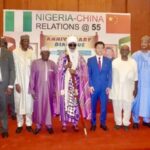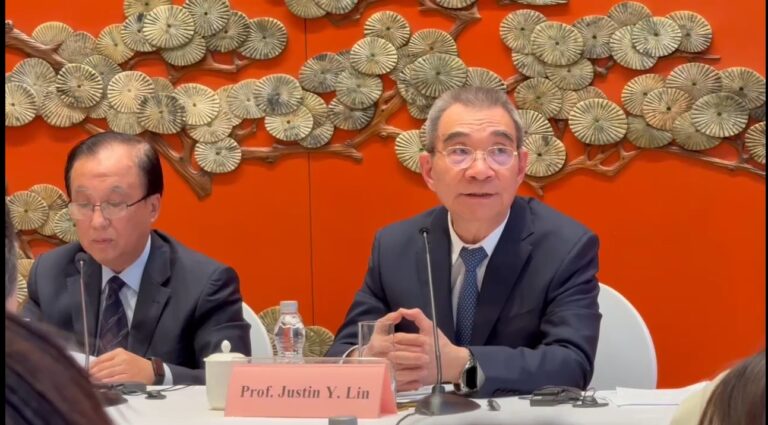By Busayo Onijala
A new, more stable world structure may emerge if China’s per capita GDP reaches half of the United States’, says Prof. Yifu Lin, Honorary Dean, National School of Development, Peking University.
Lin, who is also a former World Bank Chief Economist and Senior Vice President, Development Economics, said this during a lecture organised by China Public Diplomacy Association (CPDA) in Beijing.
Speaking on the theme, “China’s Medium and Long Term Development and the Significance of its Stable Growth to the World”, he noted that the world was currently grappling with great change, unseen in a century.
He said that with a GDP of 134.9 trillion Yuan (18.80 trillion dollars) in 2024, maintaining growth above five per cent was achievable for China, highlighting its 30 per cent annual contribution to global economic growth.
According to him, China’s sustained development is not only vital to the well-being of its 1.4 billion citizens but also to global economic stability and the reshaping of international governance systems.
”Chinese style modernisation holds significance not only for its own development but also as a crucial pillar for global stability.
”At present, only 16 per cent of the global population lives in high-income countries and once China achieves modernisation, this figure will double, bringing the world into a new stage of equilibrium.”
Lin, while projecting china’s economic future, decried the West’s “China collapse theory”.
He noted that in the last 40 years, China had been the only major economy that had not experienced a systemic economic or financial crisis.
He explained that this feat was due to China’s continued growth in technological innovation, industrial upgrading, and the formation of new productive capacity in emerging industries.
The economist further highlighted three major advantages for China’s growth including abundant pool of technological talent, vast domestic market, and the most complete industrial supply chain in the world.
Speaking on the future of China-U.S. trade, he said there were little risks of complete decoupling, adding that a possibility however could not be entirely ruled out.
”For instance, even after the tariff hikes, products like IPhones, some chips, and photovoltaic materials are no longer subject to tariffs because U.S. companies couldn’t bear the cost.
”If trade stops, the losses for the U.S. would exceed those for China, especially since the U.S. is a high-income country, with its advantageous industries all in high-tech sectors.
”These high-tech enterprises rely on the Chinese market, without which they cannot maintain profitability to support technological leadership. Therefore, economic decoupling would have a greater negative impact on the U.S,” Lin said.
He noted that trade wars were bad especially for smaller countries and therefore urged the other 85 per cent of the world’s economies to unite to address the situation rather than negotiate separately.
He added that though the U.S. economy was large, it only accounts for 15 per cent of the global economy.
Lin warned that with a persistence trade war, international analysts predict an occurrence of a situation like the Great Depression of the 1930s which followed the 1929 stock market crash when the U.S. raised high tariffs to protect domestic jobs.
”This may seem beneficial to the U.S. in the short term, but it’s ultimately harmful in the long run and we hope the world can learn from past experiences.
”We should re-establish rules-based international system. Trade issues should return to the WTO framework, where disputes can be resolved,” he added. (NAN) (nannews.ng)
Edited by Deborah Coker












